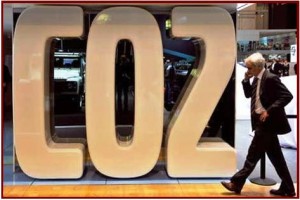The Volkswagen Group is developing air conditioning systems that use CO2 as the refrigerant. Currently automotive air conditioners, depending on age, use R12, which is banned because of global warming effects, R134a, a replacement for R12, which is also now being phased out for its role in global warming, and its replacement R1234yf, which apparently poses safety threats.
In the midst of this controversy, VW now wants to use CO2 technology. Carbon dioxide, also known as R744, is a naturally occurring gas with significantly lower greenhouse gas effects than conventional refrigerants. VW claims it is ideal for use in specially designed automotive air conditioning systems. With a GWP or Global Warming Potential value of 1, it is 99.3% below the EU specified GWP limit of 150.
Daimler is now pressing regulators to drop the new R1234yf refrigerant requirement and allow the continued use of R134a. It has publicly said it now refuses to use the new concoction. Previous tests of the new refrigerant showed it to be safe, but Daimler carried out a series of additional tests as part of a new test scenario developed in-house that goes beyond the legally prescribed requirements. The Cadillac XTS is one of the first cars in the U.S. using this new refrigerant as GM is in the process of phasing in R1234yf. (Read AutoInformed on New “Eco Friendly” Refrigerant Can Burn in Accidents Says Mercedes)
According to the Mobile Air Conditioning Society – a respected industry trade group – DuPont co-developed R1234yf in response to Europe’s Mobile Air Conditioning Directive, which requires an automotive refrigerant with a global warming potential (GWP) under 150. R1234yf refrigerant has a GWP of 4, which is 99.7% lower than the R134a refrigerant used in most cars today, which was developed as a replacement to R12. R135a has a GWP of about half that of R12.


